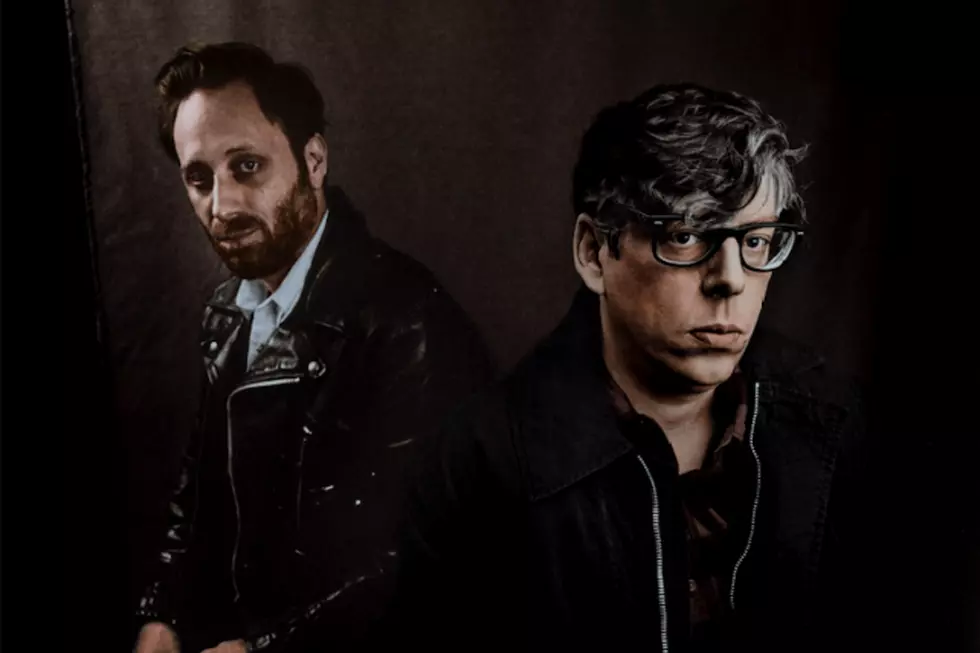Five Years Ago: Black Keys Follow Their Breakthrough With a Roar on ‘El Camino’
Simultaneously more sinewy but somehow louder than Brothers, the Black Keys' El Camino arrived on Dec. 6, 2011 not so much as a sequel to their most acclaimed release as trip around its outer edges. There was less blues, and more brawn — something that was laid out perfectly on the lead single and opening track “Lonely Boy.”
The earlier Brothers – released in the heat of May – deftly balanced both the modern rock and Delta styles that have long obsessed the Black Keys, tending to come off like a chest-bumping celebration of summer. El Camino, on the other hand, was this angry shove back against winter. Gassed up and ready to roll, this album arrived on a serious tear.
"Seeing how big the shows were getting, feeling like people were paying attention, kind of made me anxious – and I think that’s part of the reason these songs are so fast. I think we wanted to just muscle through it," drummer Patrick Carney told the New York Times in 2011. "It's a weird, 'Twilight Zone' kind of feeling. I had to be forced into adapting to the idea that the Black Keys were no longer an underdog but now were expected to be a great band."
In keeping, even during tracks like “Dead and Gone,” “Sister” and “Hell of a Season” where singer/guitarist Dan Auerbach continued exploring a newly discovered velvety lover-man vocal range, Carney was a kinetic wonder — creating these shotgun-retort tempos that threatened to shake everything else loose. “Gold on the Ceiling” boasted the gallop of a gravy-dripping Southern rock tune, while the “Money Maker” moved from an angular guitar signature (one that we can only guess brought a twinkle to Jimmy Page's eye) toward a squalling, pedal-stomping solo.
Really, it's no surprise that El Camino boasted that kind of sweep, or that kind of energy, considering what the Black Keys were listening to at the time. "All of it was very stripped-down rock and roll," Auerbach told the Huffington Post in 2012. "Like Johnny Burnette and the Rock and Roll Trio from the ‘50s, and the Stooges or something from the ‘60s, Sweet from the ‘70s, Jonathan Richman and the Modern Lovers from the ‘80s – and it all was just simple rock and roll, simple arrangements and not too many instruments."
Listen to the Black Keys Perform 'Run Right Back'
If there was a line to be drawn back to this duo’s more recent blues-based explorations with returning producer Danger Mouse, it arrived courtesy of a weeping slide which hailed the beginning of “Run Right Back.” Even there, however, the Black Keys quickly ditched that dusty-booted antique sound in order to create another towering paean to the unfettered joy of a window-rattling ostinato. In the end, “Run Right Back” had more in common with the relentless propulsion of north Mississippi acts like the late Junior Kimbrough.
There was a similar transformation on “Little Black Submarines,” which began with a quick exhale of mournful recollection. This initial corn-row gospel feel was quickly immolated, however, by a fast-paced outburst of nervy guitars, howling vocals and broiling rhythms. “Maybe we’re just not very bright,” Auerbach told the New York Times. “If we’d been smart, we would have kept it like our successful record.”
Then again, there's something quite visceral about watching the needle here just vibrating on the right side of the speedometer — from a deliriously inventive reduction of Smokey Robinson’s atmospheric trills, these piercing post-punk riffs and sock-hop beats on the stand-out track “Stop Stop,” to the arena-rock anthem “Nova Baby.” The Black Keys then settled into a rumbling menace for “Mind Eraser,” which closed El Camino with a sparky sense of unfinished business.
That’s actually appropriate since, in the end, this record didn’t feel like the creative breakthrough that Brothers was, so much as a continuation of its essential experiments. Turned up to 11, that is.
Black Keys Albums Ranked In Order of Awesomeness
More From Diffuser.fm









